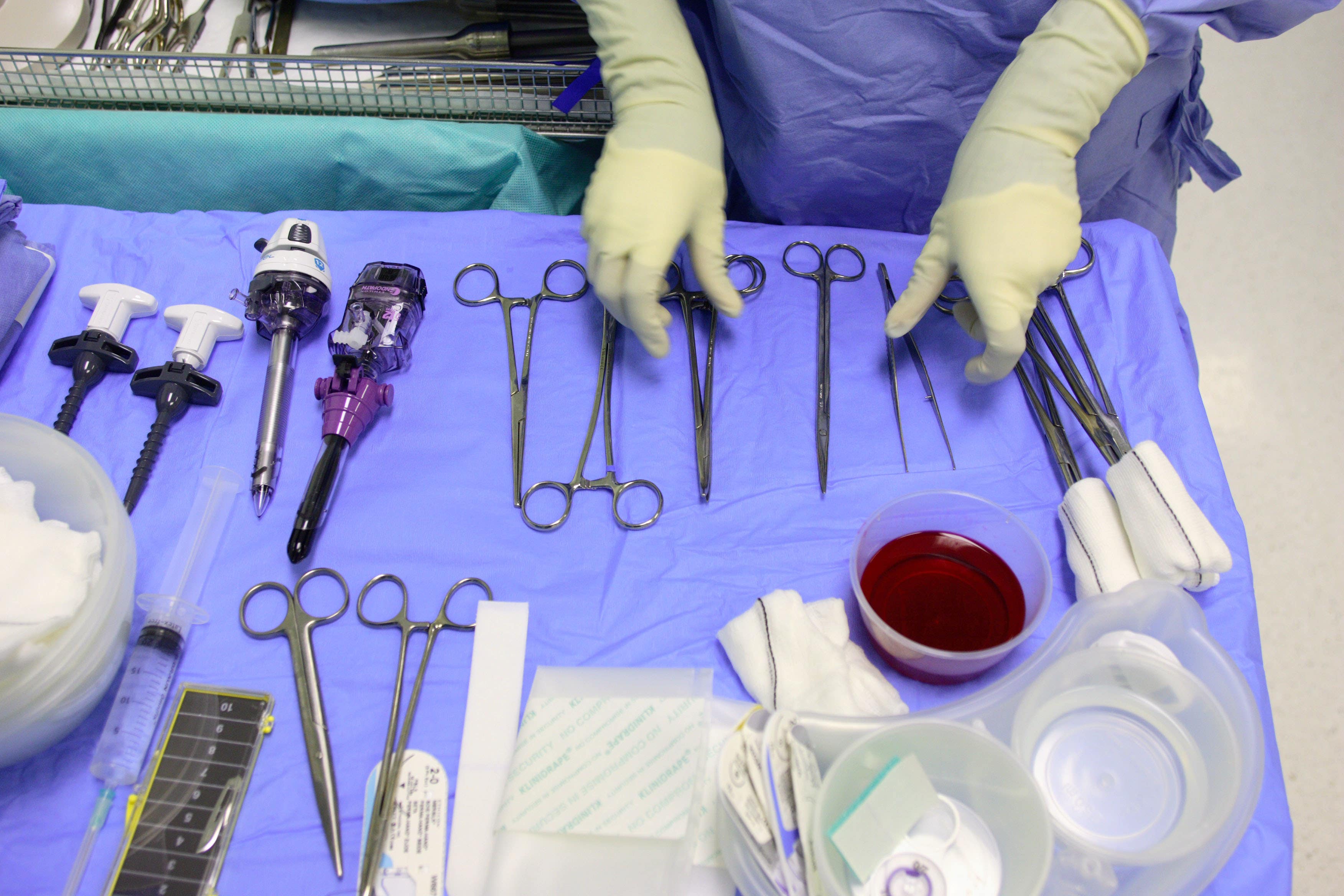Patients treated by female surgeons ‘fare better’ – study
Death rates and post-op complications were lower among patients treated by female surgeons.

Your support helps us to tell the story
From reproductive rights to climate change to Big Tech, The Independent is on the ground when the story is developing. Whether it's investigating the financials of Elon Musk's pro-Trump PAC or producing our latest documentary, 'The A Word', which shines a light on the American women fighting for reproductive rights, we know how important it is to parse out the facts from the messaging.
At such a critical moment in US history, we need reporters on the ground. Your donation allows us to keep sending journalists to speak to both sides of the story.
The Independent is trusted by Americans across the entire political spectrum. And unlike many other quality news outlets, we choose not to lock Americans out of our reporting and analysis with paywalls. We believe quality journalism should be available to everyone, paid for by those who can afford it.
Your support makes all the difference.Patients operated on by female surgeons “fare better” than those treated by men, according to a new study.
Post-operation death rates were lower in patients treated by female physicians, experts found.
These patients were also less likely to be readmitted to hospital or suffer other surgery-linked complications, according to the study by researchers from Canada and the US.
Academics said the findings “add to the growing literature showing that patients cared for by female physicians (including surgeons) appear to fare better than those being cared for by male physicians”.
These data add to the growing literature showing that patients cared for by female physicians (including surgeons) appear to fare better than those being cared for by male physicians
The new study, published in the journal JAMA Surgery, included data on more than a million adult patients who had been given surgery in Ontario, Canada.
Some 151,054 were treated by a female surgeon and 1,014,657 by a male surgeon.
Researchers examined “post-operative outcomes” – including death rates, hospital readmissions and complications – among patients at 90 days post operation and again a year after their surgery.
Overall 14.3% suffered one or more “adverse post-operative outcomes” after 90 days.
This rose to 25% in the year following surgery.
Two percent of patients died within 90 days and 4.3% died within a year.
The researchers found that patients treated by a female surgeon were less likely to die and had reduced odds of hospital readmission, or major medical complication at 90 days or one year after surgery.
They found that 90 days after an operation, 13.9% of patients treated by a male surgeon had “adverse post-operative events”, compared with 12.5% treated by women.
A year after surgery, adverse events were seen in 20.7% of patients operated on by female surgeons compared with 25% treated by men.
Meanwhile, three months after surgery 0.5% of patients treated by women had died compared with 0.8% of patients operated on by male surgeons.
To provide the best patient care, organisations should support women physicians and learn how they accomplish these improved outcomes
And a year after an operation, 1.6% of patients operated on by female surgeons had died compared with 2.4% operated on by male surgeons.
“In this large population-based cohort study, patients treated by female surgeons had significantly lower long-term (90-day and one-year) rates of adverse postoperative outcomes than those treated by male surgeons,” the authors wrote.
“These data add to the growing literature showing that patients cared for by female physicians (including surgeons) appear to fare better than those being cared for by male physicians. Despite these data, women continue to be marginalised in the workplace in many ways.
“To provide the best patient care, organisations should support women physicians and learn how they accomplish these improved outcomes.”